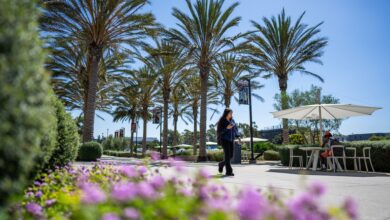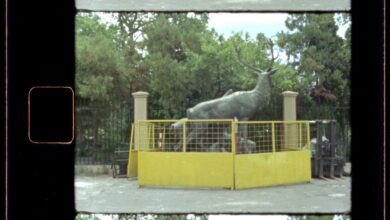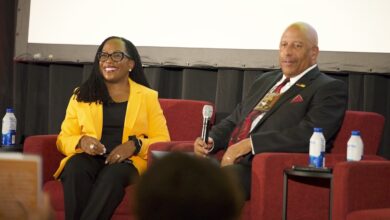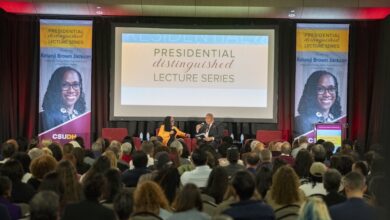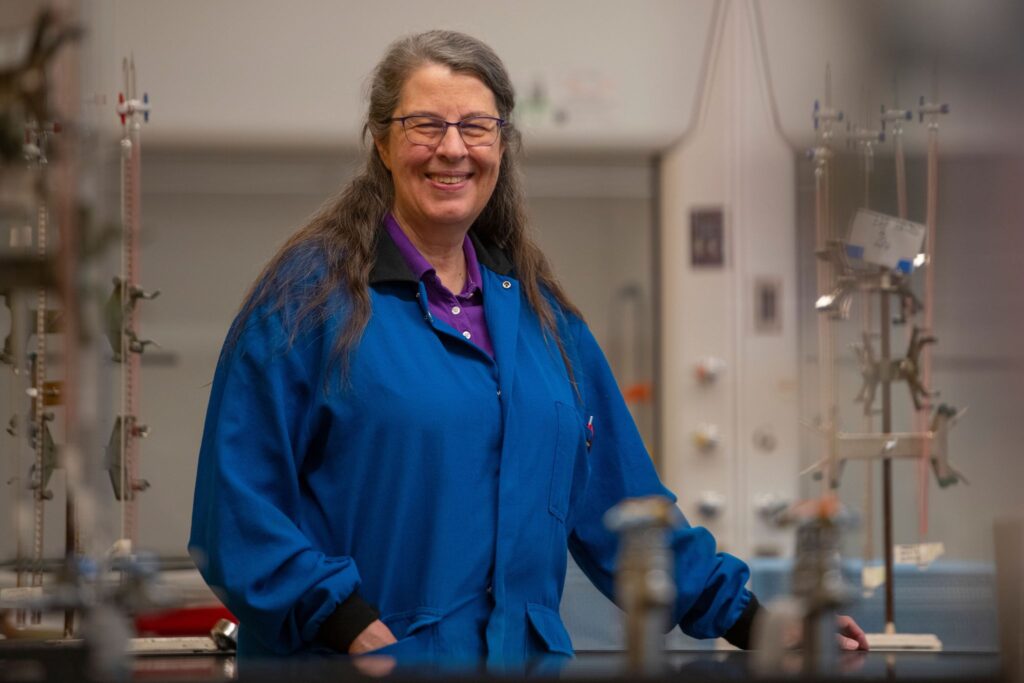
After more than twenty years of being a faculty member at CSUDH, chemistry lecturer Barbara Belmont says she is still “wiggly” every day with the excitement of teaching.
“My first career goal was to be a teacher, and it was a long road to get here,” Belmont explains.
“I was a first-generation college student. I had nearly 25 years of industrial experience before beginning my teaching career, and I’m not a Ph.D. or tenure track. However, my non-traditional path to higher education instruction makes me exceptionally confident about teaching. My experiences inform my approach in the classroom.”
Belmont has every reason to be confident, as her enthusiasm and dedication have earned her the 2023 Catherine H. Jacobs Outstanding Faculty Lecturer award. The accolade recognizes faculty who demonstrate excellence in teaching effectiveness, and acknowledges the role non-tenure track lecturers play in student success and the campus community as a whole.
“I’m over the moon,” Belmont says of winning the award. “I really identify with our students, their struggles, and their persistence and resilience. I’m very proud.”
Just last year, Belmont was also named an LGBTQ+ trailblazer by Chemical & Engineering News, the newsmagazine of the American Chemical Society.
Belmont uses four basic principles to guide her teaching: motivation, relevance, fairness, and transparency. As an analytical chemist, she strives to show her students how their studies have real world applications, works on students’ personal development, and engages with them on strategies for mastering course material.
She also applies that attitude to her own pedagogy, continually working to improve herself and her teaching. Belmont holds an Association of College and University Educators (ACUE) certification in effective college instruction, and recently completed a course on advancing inclusive mentoring.
“I like to find new ways to figure out what is best,” she says, adding that one of her favorite aspects of teaching is “helping someone turn themselves from an immature learner to a mature learner.”
In her spare time, Belmont also loves to tinker with the tools of the trade. She is part of the maker community, which encourages a DIY approach to building machines and technology.
One of her research group’s biggest projects was constructing a very low cost potentiostat, an instrument which measures electron currents and can cost upwards of $10,000.
The Belmont Research Group began building their own in 2016, and eventually implemented it in her Quantitative Analysis lab experiment portfolio in Fall 2021. She also secured grant funds to help build up to 24 more of the devices with her students.
“I love that discovery–it gives me great joy,” she says. “I want my students to see what is possible.”


